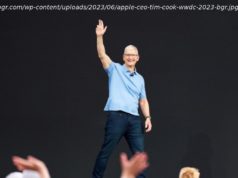What’s in a name? Neuralink is a lot sweeter now that a billionaire is behind it.
Last week, we learned that Elon Musk will start a mind-computer interface company called Neuralink. The name added a brainy new entry to Musk’s growing scroll of big ideas—Tesla, SolarCity, SpaceX, the Hyperloop.
But as the news of Musk’s nascent venture to merge man and machine spread across social media, an electrical engineer in Ohio named Pedram Mohseni must have been slapping his forehead.
That’s because in January he’d agreed to sell the name Neuralink to Musk without realizing it.
Mohseni, a professor at Case Western Reserve University, and his scientific partner, Randolph Nudo of Kansas University Medical Center, had owned the trademark on „NeuraLink“ since 2015 after creating their own startup company.
The pair of longtime neurotech researchers had developed a device that might help people with brain injuries. But their initial contacts with investors hadn’t advanced very far when a stranger approached them offering tens of thousands of dollars for their company’s name. They accepted. No one mentioned that Musk, whose net worth is $14.7 billion according to Forbes, was behind it.
“They approached us, we negotiated, and now Elon Musk will be the rightful owner of Neuralink,” says Mohseni.
Instead of hard feelings, Mohseni says he’s excited. Finally, tech titans are throwing money behind some far-out ideas that a small number of neuroscientists have long championed and doggedly sought to advance.
In addition to Musk, the online payments entrepreneur Bryan Johnson is putting $100 million in a company called Kernel , which is also developing brain implants.
In uncovering details of Musk’s venture, the Wall Street Journal last week reported the company will develop new ways to treat disease but ultimately also a means of fusing human and machine intelligence. That’s something Musk seems to think is necessary to counter the risk of runaway artificial intelligence.
It’s “difficult to dedicate the time” to yet another high-tech venture, in addition to electric cars and space rockets, Musk tweeted , “but existential risk is too high not to.”
Just how brain technology will let humanity keep up with AI is anyone’s guess—and Musk’s company hasn’t said what it intends. But Rikky Muller, a professor at the University of California, Berkeley, says treating medical conditions and the aim of connecting consciousness to computers “are not unrelated, because anything implanted in the human body has to meet all the standards of a medical device.
Start
United States
USA — IT Meet the Guys Who Sold “Neuralink” to Elon Musk without Even Realizing...






